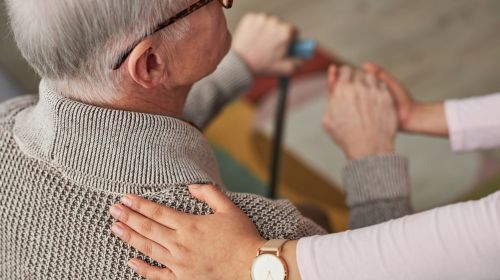Even though we’re more connected than ever, loneliness and social isolation remain big health issues. Being socially isolated has always been linked to poor mental and physical health, but new research shows it goes even deeper and affects us at a cellular level. Studies suggest that social isolation speeds up how our cells age which can ultimately lead to chronic diseases and eventually shorten our lives. In this article, we will explore the biological mechanisms that link social isolation to cellular aging, the long-term consequences, and strategies for mitigating its effects.
What is Social Isolation?
Social isolation means having little to no interaction with others. It leads to a small social circle and a lack of participation in any activities. Social isolation is different from loneliness, which is the feeling of being alone or disconnected. You can feel lonely even when surrounded by people, but social isolation is about actually lacking social connections.
Prevalence of Social Isolation
Social isolation can affect people of all age groups however, it is mostly common among:
- Elderly populations: Older adults often face isolation due to retirement, the loss of loved ones, or declining mobility.
- Young adults: Despite being digitally connected, many in this group report limited face-to-face interactions.
- Individuals with chronic conditions or disabilities: These groups often experience barriers to social participation.
Furthermore, the COVID-19 pandemic exacerbated social isolation all around the globe. Even as societies have reopened, the psychological and physical toll is still there to be dealt with.
Cellular Aging
Cellular aging is the gradual deterioration of cell function with increasing age. Here’s how it happens:
- Telomere Shortening: Telomeres are protective caps on the ends of chromosomes that shorten with each cell division. The age of a cell can be determined by the length of a telomere, an older cell will have shorter telomere as compared to a younger cell. Studies have suggested that short telomeres in younger cells are linked to conditions like heart disease, diabetes, and cancer.
- Oxidative Stress: An imbalance between free radicals and antioxidants can damage cells and accelerate aging.
- Inflammation: Chronic low-grade inflammation is a hallmark of aging and plays a major role in cellular damage.
Social Isolation and Its Effects on Cellular Aging
Recent studies concluded the effects of social isolation on cellular aging. Various factors, including stress, inflammation, and hormonal changes play a major role:
1. Psychosocial Stress and Its Cellular Impact
Social isolation creates ongoing stress because people without strong social support often struggle to cope effectively. This constant stress raises cortisol levels, which is also known as the stress hormone. Excessive secretion of cortisol in the body can harm cells and tissues, speed up telomere shortening, and interfere with DNA repair which can ultimately lead to faster aging at a cellular level.
2. Inflammation: The Silent Culprit
Studies have linked social isolation to higher inflammation levels in the body. When we’re stressed or feel threatened, even emotionally, the body reacts with an inflammatory response. People who are socially isolated may have raised levels of markers like C-reactive protein (CRP) and interleukin-6 (IL-6). This chronic inflammation can lead to oxidative stress, damage DNA, and shortened telomeres. All of these factors play a major role in speeding up cellular aging.
3. Immune System Dysregulation
A healthy immune system is extremely important for fighting off infections and repairing damage. As discussed earlier, social isolation can weaken the immune response which makes cells vulnerable to oxidative stress and premature aging. Studies have shown that a decreased number of natural killer (NK) cell activity and abnormal function of T-cells in socially isolated individuals can cause further cellular aging.
Long-Term Consequences of Accelerated Cellular Aging
Cardiovascular Disease
With increased cellular damage comes arterial stiffness, endothelial injuries, plaque formation, and involvement of the major vessels, all of which can lead to heart diseases and even strokes. As we have already discussed social isolation is a major contributing factor in cellular damage, thus it eventually leads to cardiovascular conditions.
Socially isolated individuals are at a significantly higher risk of developing these conditions.
Cognitive Decline and Neurodegenerative Diseases
Neuroinflammation is a consequence of systemic inflammation which plays a vital role in conditions like Alzheimer’s disease and other dementias. Studies have shown that social isolation is a known risk factor for cognitive decline.
Mental Health Disorders
The psychological toll of social isolation including depression and anxiety caused further cellular stress and inflammation, thus creating a never-ending vortex of cellular damage and mental health issues.
How to Minimize Cellular Aging Due to Social Isolation?
The effects of cellular aging secondary to social isolation are concerning however, they are manageable. Here’s how you can do it:
1. Strengthen Your Social Connections
- Try to prioritize quality over quantity when it comes to building connections. Building meaningful relationships is more important than maintaining a large social network.
- Try to engage yourself in your community. Participating in group activities, volunteering, or joining clubs can reduce feelings of isolation and leave you with a sense of belonging.
2. Stress Management
Stress management is one of the most useful techniques that can help you reduce the damage caused due to social isolation. You can learn and practice techniques such as yoga, deep breathing exercises, and meditation. Not only do they calm your nerves but studies have suggested that they also lower your stress levels and even reduce inflammation.
3. Healthy Lifestyle Choices
Last but not least, make healthier lifestyle choices. Add exercise to your routine. You don’t have to do a vigorous workout every day, instead, studies suggest that 150 minutes of light physical activity such as walking or jogging is enough to prevent many physical and mental health issues. Furthermore, you should try to keep a balanced diet. Try to include healthy fats, antioxidants, and lean proteins in your diet.
Last but not least, get plenty of sleep. You should aim to get at least 8 hours of sleep every night for optimal body functioning.
If you are looking for a deeper understanding of the link between social isolation and cellular aging, check out this YouTube video.
Conclusion
The effects of social isolation extend far beyond emotional well-being, it affects your health at the cellular level. By speeding up processes like telomere shortening, oxidative stress, and inflammation, social isolation contributes to chronic disease and premature aging. However, nature has provided your body with the power to fight them.
Some of the ways how you can minimize the damage caused by social isolation are by building and maintaining strong social connections, adopting a healthy lifestyle, and using support systems to your benefit.









